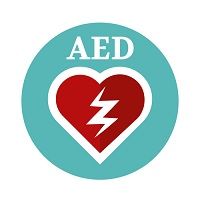Warning: Turn Off That Vagal Nerve Stimulator if You Cardiovert a Patient
In cardioverting a patient with atrial fibrillation, physicians accidentally overstimulated an implanted vagal nerve stimulator, harming the patient.

Patients with refractory epilepsy may benefit from an implanted vagal nerve stimulator (VNS) device. In a cautionary tale reported at the American Epilepsy Society's 69th Annual Meeting in Philadelphia, PA, two Pittsburgh, PA neurologists -- Andrea Synowiec, DO, and Nnamidi Dike, DO -- reported a serious event involving a VNS.
The patient, a 60-year-old man, was admitted to the hospital with new-onset atrial fibrillation. He also had a vagal nerve stimulator on board. Doctors initially tried to get his heart rhythm back to normal by using diltiazem, but that did not work.
Cardioversion came next and successfully restored the patient's sinus rhythm. But he developed profound persistent dysphagia, throat irritation, dry hacking cough and symptomatic bradycardia with his heart rate dropping down to the 20s.
The jolt of electricity used to restore his heartbeat had damaged the vagal nerve device, the physicians concluded.
"On fluoroscopy for swallow evaluation the VNS leads could be seen exposed in the soft tissue of the neck," they wrote.
The device was stripped of insulation but still firing and whenever it went off the patient's throat pain and bradycardia occurred.
"The VNS generator was shocked leading to a short circuit which caused a burn injury to the left vagus nerve," they wrote. His symptoms were likely due to vasovagal responses from the pain caused by the VNS naked lead shocking the neck soft tissue."
The lesson for clinicians, they wrote, is that "timely recognition of this phenomenon is critical as the first-line management appears to be deactivation of the malfuctioning VNS." Without such action the problem "may be life-threatening," they said.